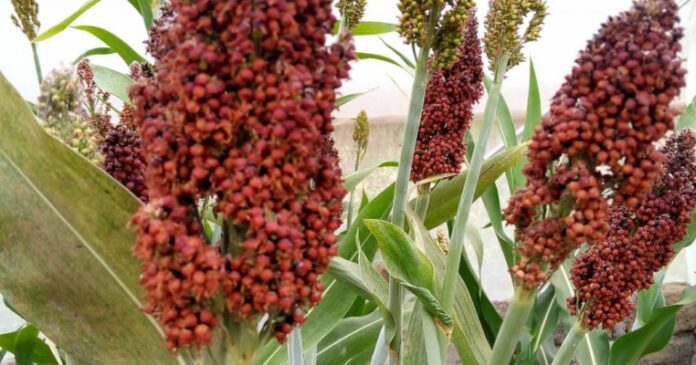The International Crops Research Institute for Semi-Arid Tropic (ICRISAT) – in collaboration with Nigeria’s National Agricultural Research System – Lake Chad Research Institute (for peal millet) and the Institute for Agricultural Research, Ahmadu Bello University (for sorghum) – has developed three sorghum varieties.
The new varieties promise better nutrition and higher yields for farmers.
The three sorghum and three pearl millet varieties are suited to the country’s Sudano-Sahelian/semi-arid ecologies and are designed to be high-yielding, nutritionally enhanced, and well-adapted to local conditions.
“These new released hold promise in boosting production output while providing greater nutrition as they are well-adapted to local conditions, are high-yielding, and nutritionally enhanced,” Dr. Jacqueline Hughes, ICRISAT director general said.
“This collaboration exemplifies the commitment of ICRISAT and the Nigerian National Agricultural Research System through the Lake Chad Research Institute, the Institute for Agricultural Research, Ahmadu Bello University, and others, to bring innovative technologies and crops to help farmers meet the challenges of the future while improving their yields and livelihoods.
We anticipate more breakthroughs for Nigeria and West Africa more broadly, helping to future-proof food and nutrition security in the face of climatic and other challenges affecting food production,” she added.
The dwarf sorghum varieties developed are named SAMSORG 52, 53, and 54, and are suitable for insurgency-endemic regions where tall crops are prohibited. They additionally exhibit high grain and fodder yields, are early maturing, and are Striga tolerant with SAMSORG 52 also being a good ingredient for weaning food due to its high iron content.
The pearl millet varieties offer high yield, early medium maturity, and specific traits such as high iron and zinc, and high-tillering traits or the production of side shoots along with dense panicles to help protect against damage from birds.
ICRISAT deputy director general – research, Dr. Arvind Kumar said he was delighted to see the new varieties that would help West African farmers secure a more food-secure future and that all scientists and support staff for their dedication to the project.
ICRISAT research programme director for Accelerated Crop Improvement, Dr. Sean Mayes commended the collaboration and said the new varieties demonstrated the importance of genetic advancements for improving crop productivity and nutrition – especially for regions across Africa and Asia least able to adapt to climatic changes and other environmental stressors.









